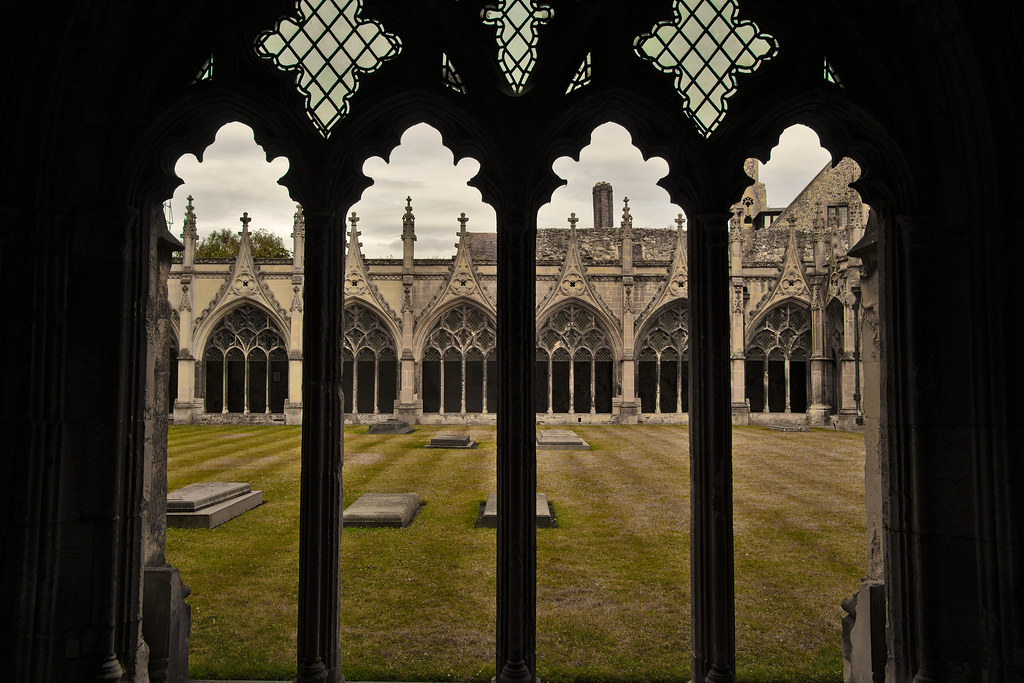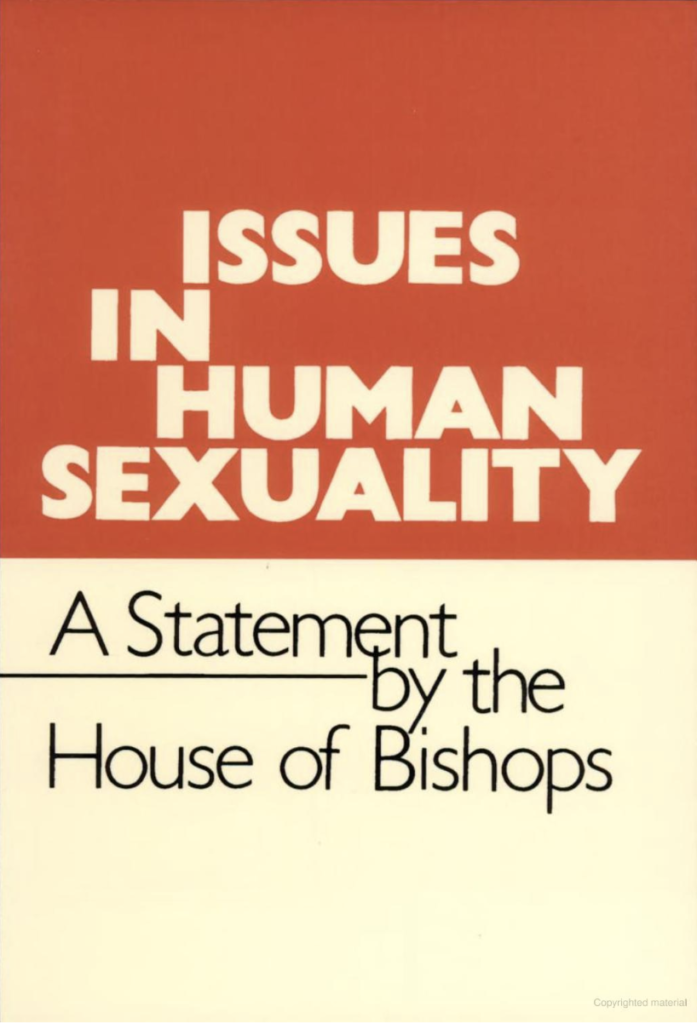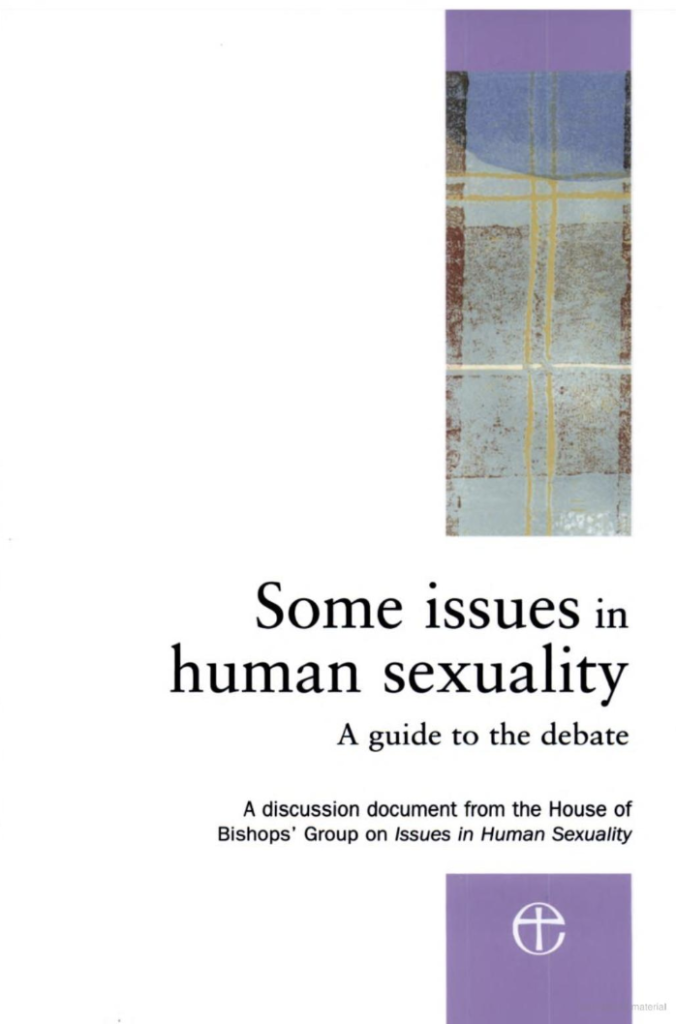
The Ordination of Transgender Candidates in the Church of England
Christopher Grout
Cover image: Canterbury Cathedral in Canterbury, Kent, UK. Original image by Philipp Haegi licensed under CC BY-NC-SA 2.0.
Editors’ note: The terms ‘transgender’ and ‘transsexual’ have connotations that have changed over time and in different contexts. The author of this article uses terminology that is consistent with the sources and documents cited herein.
The Church of England (‘the Church’) is currently in the process of undertaking its Living in Love and Faith Project. The project is motivated by “the Church’s desire to learn how relationships, marriage and sexuality fit within the bigger picture of a humanity that is liberated by Jesus Christ and infused by the Spirit to reflect the image of God in which we are created.” 1https://www.churchofengland.org/about/leadership-and-governance/general-synod/bishops/living-love-and-faith/purpose-and-vision accessed 12 September 2019. When the project was introduced before General Synod in July 2018, it was recognised that it would take some time to fully complete and evaluate the study. However, General Synod equally recognised that “[w]e cannot put life on ‘pause’ to wait until the . . . project is completed. There are difficult and painful pastoral situations that need to be addressed here and now.”2Introducing Living In Love and Faith and the Pastoral Advisory Group, Presentation to General Synod, 7 July 2018, available at https://www.churchofengland.org/sites/default/files/2019-02/general_synod_introducing_living_in_love_and_faith_and_the_pastoral_advisory_group_presentation.pdf accessed 12 September 2019.
Some of the pressing concerns that the project will address include questions related to transsexuality and transgender identity. While the completion of the project will almost certainly provide much direction and insight for the Church on these issues, the Church has had to grapple with such issues in the meantime as well. Some of the tough questions currently being explored include (i) how transgender identifying individuals are welcomed by the Church generally and (ii) what should be the Church’s attitude towards ordaining transsexual and transgender identifying individuals pursuing clerical roles.
With respect to the first question, the House of Bishops has stated that it “welcomes and encourages the unconditional affirmation of trans people, equally with all people, within the Church, the body of Christ, and rejoices in the diversity of that one body, into which all Christians have been baptized by one Spirit.”3An Update on ‘Welcoming Transgender People’, General Synod, (GS Misc. 1178). In furtherance of this position, Pastoral Guidance has been issued for use in conjunction with the affirmation of baptismal faith in the context of gender transition.4https://www.churchofengland.org/sites/default/files/2018-12/Pastoral%20Guidance-Affirmation-Baptismal-Faith.pdf accessed 12 September 2019.
The second major concern—the Church’s approach to the ordination of those who have undergone (or are in the process of undergoing) gender reassignment, as well as those who are already fulfilling a ministerial vocation within the Church but have decided to transition—has proven to be somewhat more complex.
Perhaps unsurprisingly, the Canons of the Church of England do not deal with issues concerning sexuality. They do, however, deal with matters relating to the quality of those who are to be ordained. Canon C4.2 provides that:
Every bishop shall take care that he admit no person into holy orders but such as he knows either by himself, or by sufficient testimony, to have been baptized and confirmed, to be sufficiently instructed in Holy Scripture and in the doctrine, discipline, and worship of the Church of England, and to be of virtuous conversation and good repute and such as to be a wholesome example and pattern to the flock of Christ.5Canons of the Church of England, Canon C4.2.
Furthermore, Canon C4.3 states:
No person shall be admitted into holy orders who is suffering, or who has suffered, from any physical or mental infirmity which in the opinion of the bishop will prevent him from ministering the word and sacraments or from performing the other duties of the minister’s office.6Canons of the Church of England, Canon C4.3.
On its website, the Church makes the following observations in respect of gender and sexuality:
There are no restrictions to ordination based on gender. Female, male, non-binary, and transgender candidates are equally welcomed…There are no restrictions to ordination based on sexuality. All candidates for ordination must affirm they are willing to live within the Bishops’ guidelines on Issues in Human Sexuality.7https://www.churchofengland.org/life-events/vocations/preparing-ordained-ministry/understanding-selection
Although the authorship of these observations is unclear, they must be taken at face value. Accordingly, the fact that someone identifies as transgender (whether having undergone gender reassignment or not) should not, in and of itself, constitute a bar to ordination.
Be that as it may, there is still a requirement that candidates for ordination must affirm that they are willing to live within the Bishops’ guidelines on Issues in Human Sexuality.8Issues in Human Sexuality: A Statement by the House of Bishops of the General Synod of the Church of England, December 1991, (GS Misc. 382). To modern readers, that publication may appear as somewhat outdated, which is one reason why the Living in Love and Faith project is particularly welcome. Nevertheless, for now at least, the text remains the Church’s guiding authority concerning matters of sex and sexuality. While Issues makes some general observations relating to scripture and human sexuality, its focus (and indeed the impetus for its publication) concerns the issue of homosexuality. Worthy of note, however, is that while Issues concludes that members of the clergy cannot “claim the liberty to enter into sexually active homophile relationships”9Ibid, paragraph 5.16 it also acknowledges that “the ministries of many homophile clergy are highly dedicated and have been greatly blessed. God has endowed them with spiritual gifts, as he has his other ministers, and we give thanks for all alike.”10Ibid, paragraph 5.11


Accordingly, the point can quite properly be made that, while Issues does not deal with the issue of transsexuality, it does acknowledge that the capacity to flourish within ordained ministry is not within the exclusive province of heterosexual men.
Although Issues remains the guiding authority, a discussion document entitled Some Issues in Human Sexuality11Some issues in human sexuality: a guide to the debate, Church House Publishing, London, 2003. was published under the authority of the House of Bishops in 2003. Unlike its predecessor, it does deal explicitly with the issue of transsexuality and ordination, recognising that there are likely to exist competing views on the matter.
Some Issues identifies two reasons to reject the ordination of transsexual and transgender individuals. The first is said to be the “belief that [transsexuals] cannot present a proper role model for other Christians.”12Ibid, paragraph 8.6.10 Reference is made to a report by the Evangelical Alliance which provides that:
Whilst we are reluctant to impose hard and fast rules, nevertheless it would in principle be clear that, on the basis of biblical passages such as 1 Timothy 3.1-13 and Titus 1.6-9, excellent and unquestioned role models are foundational requirements for Christian leadership. As transsexual people are role models so fundamentally distinct from accepted examples, we consider their appointment to leadership or counselling positions within the church to be unwise on Biblical as well as other grounds.13Evangelical Alliance, Transsexuality, Paternoster Press, 2001, p.44. Perhaps of worthy of note is that, in its most recent report, the same point is not made. See: Evangelical Alliance, Transformed, 2018, https://www.eauk.org/resources/what-we-offer/reports/transformed-understanding-transgender-in-a-changing-culture/transformed-the-resource accessed 16 September 2019.
As Some Issues observes, in Church of England terms, “the argument would be that transsexuals could not fulfil the requirement in Canon C4 to be a wholesome example and pattern to the flock of Christ.”14Some issues in human sexuality (n9) paragraph 8.6.11.
The second argument against ordination in Some Issues is “the belief that transsexual people are not sufficiently stable psychologically to fulfil a ministerial vocation.”15Ibid, paragraph 8.6.13. This view is supported by Woodall who, writing from a Roman Catholic perspective, observed that:
The deep-rooted psychological problems of transsexual persons, their profound difficulties in inserting themselves into stable relationships, the question of fantasising and pursuing illusory hopes and solutions are all bound to call into question the judgement of the transsexual person who might seek priestly ordination. The issue of that person’s capacity to undertake a life-long ministry in the priesthood is as much a problem here as it would be, were he contemplating marriage.16Woodall, G., Trans-sexual Persons and Catholic Moral Theology (unpublished paper) pp.17-18 cited in Some issues in human sexuality (n9) paragraph 8.6.13.
Although not cited directly in Some Issues, this claim also implicates Canon C4.3 if one accepts the argument that transgender candidates do not possess the necessary mental stability in order to perform the duties associated with the role.
Some Issues also reviews likely avenues for ecumenical support for the ordination of transsexual and transgender individuals. It notes that those who do not consider transsexuality to be incompatible with ordination would hold, first, that “the Church’s belief in absolute sexual differentiation needs to be modified, or that in the case of transsexual people their true God-given sexual identity was not simply determined by their biology.”17Some issues in human sexuality (n9) para. 8.6.15. Secondly, that “there are examples of well-adjusted transsexuals who would be able to fulfill a ministerial vocation perfectly adequately.”18Ibid, para. 8.6.16 Indeed, it may be said that transsexual clergy could act as ‘role models’ for other transsexuals within the community. There has already been one reported case of a male vicar, ordained within the Church of England, undergoing gender reassignment and returning to the same church as a woman.19https://www.telegraph.co.uk/news/uknews/1376173/Sex-change-vicar-tells-how-her-prayers-have-been-answered.html accessed 17 September 2019. There have also been ‘diversity drives’ in some dioceses with the aim of one said to be that of “welcoming and honouring LGBT+ people” and supporting them in “exploring vocations to licensed lay and ordained ministries.”20https://www.telegraph.co.uk/news/2018/05/26/transgender-people-encouraged-become-priests-church-england/ accessed 17 September 2019.
Undoubtedly, there exists a conservative school of thought within the Church that transgender individuals should not be ordained. However, insofar as the Church as an institution is concerned, the tide is certainly flowing in the opposite direction. The Church strives- often in the face of opposition- to be as inclusive as possible; indeed, it pro-actively welcomes transgender candidates. While the outcome of the Living in Love and Faith Project is much anticipated, even Issues, outdated though it may seem, reminds us that:
Although we must take steps to avoid public scandal and to protect the Church’s teaching, we shall continue, as we have done hitherto, to treat all clergy who give no occasion for scandal with trust and respect, and we expect all our fellow Christians to do the same.21
Issues in Human Sexuality (n6) paragraph 5.18

Christopher Grout is a barrister who holds a LL.B degree from Newcastle University and a LL.M degree in Canon Law from Cardiff University. He was called to the Bar of England and Wales by the Honorable Society of the Inner Temple in 2007.
Recommended Citation
“Transgender Rights, Bathroom Bills, and the Families of Transgender Youth – A Conversation with Director Vlada Knowlton.” Canopy Forum, December 4, 2019. https://canopyforum.org/2019/12/04/transgender-rights-bathroom-bills-and-the-families-of-transgender-youth-a-conversation-with-vlada-knowlton/

